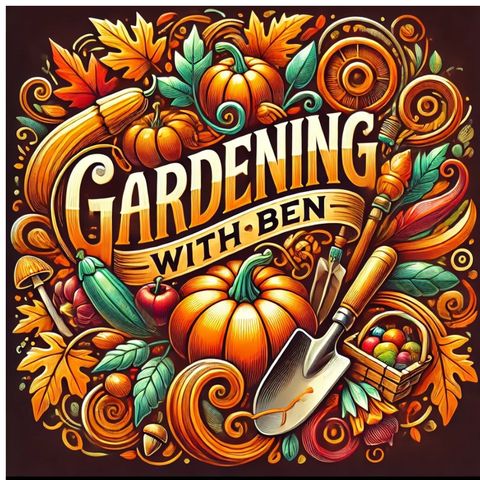"Caring for Birds in Your Allotment Garden: Tips for a Wildlife-Friendly Space"

Descarga y escucha en cualquier lugar
Descarga tus episodios favoritos y disfrútalos, ¡dondequiera que estés! Regístrate o inicia sesión ahora para acceder a la escucha sin conexión.
Descripción
Welcome to "Caring for Birds in Your Allotment Garden: Tips for a Wildlife-Friendly Space," your essential guide to creating a haven for birds in your garden. Birds play a crucial...
mostra másImportance of Attracting Birds to Your Garden
Birds bring numerous benefits to your garden. They help control insect populations, pollinate flowers, and spread seeds, contributing to a balanced ecosystem. Moreover, watching birds can be a relaxing and enjoyable experience, adding a new dimension of joy to your gardening activities.
Creating a Bird-Friendly Habitat
**1. Provide Food Sources:** To attract birds, it’s essential to provide a variety of food sources. Plant native trees, shrubs, and flowers that produce berries, seeds, and nectar. Additionally, set up bird feeders stocked with seeds, nuts, and suet to supplement their natural diet.
**2. Install Water Features:** Birds need water for drinking and bathing. Install a bird bath or a small pond in your garden. Ensure the water is clean and fresh, especially during hot and dry periods.
**3. Offer Shelter and Nesting Sites:** Birds need safe places to rest and raise their young. Plant dense shrubs and trees to provide natural shelter. Additionally, install birdhouses and nesting boxes to offer secure nesting sites for various bird species.
Choosing the Right Plants
Selecting the right plants is crucial for attracting birds. Here are some plant recommendations:
**1. Berry-Producing Plants:** Plants like holly, hawthorn, and elderberry produce berries that are a vital food source for birds, especially during winter.
**2. Seed-Producing Flowers:** Sunflowers, coneflowers, and marigolds produce seeds that birds love. Let these plants go to seed to provide natural bird food.
**3. Nectar-Rich Flowers:** Flowers like bee balm, trumpet vine, and honeysuckle attract hummingbirds and other nectar-feeding birds.
Maintaining a Bird-Friendly Garden
**1. Regular Feeder Maintenance:** Clean your bird feeders regularly to prevent the spread of diseases. Ensure they are always stocked with fresh food.
**2. Safe Pest Control:** Avoid using chemical pesticides, as they can harm birds and other wildlife. Opt for organic pest control methods, such as companion planting and introducing beneficial insects.
**3. Seasonal Care:** Adjust your bird care routine according to the seasons. In winter, provide extra food and ensure water sources don’t freeze. In spring, clean out nesting boxes to prepare for new occupants.
Encouraging Bird Diversity
To attract a variety of bird species, diversify your garden habitat:
**1. Layered Vegetation:** Create layers of vegetation with trees, shrubs, and ground cover to provide different types of shelter and foraging opportunities.
**2. Mixed Habitats:** Incorporate different habitats like open areas, dense thickets, and water features to cater to various bird species’ needs.
Listener Questions and Success Stories
We love hearing from our listeners! In this episode, we’ll feature your questions about attracting and caring for birds in your garden and share success stories from the community. Learn from others' experiences and get practical advice tailored to your gardening challenges.
Conclusion
"Caring for Birds in Your Allotment Garden: Tips for a Wildlife-Friendly Space" is your comprehensive guide to creating a bird-friendly garden that supports local wildlife. With expert tips, practical advice, and inspiring stories, this episode will help you transform your allotment into a haven for birds. Tune in, subscribe, and join us as we explore the joys and benefits of wildlife gardening. Happy gardening!
Información
Copyright 2024 - Spreaker Inc. an iHeartMedia Company
